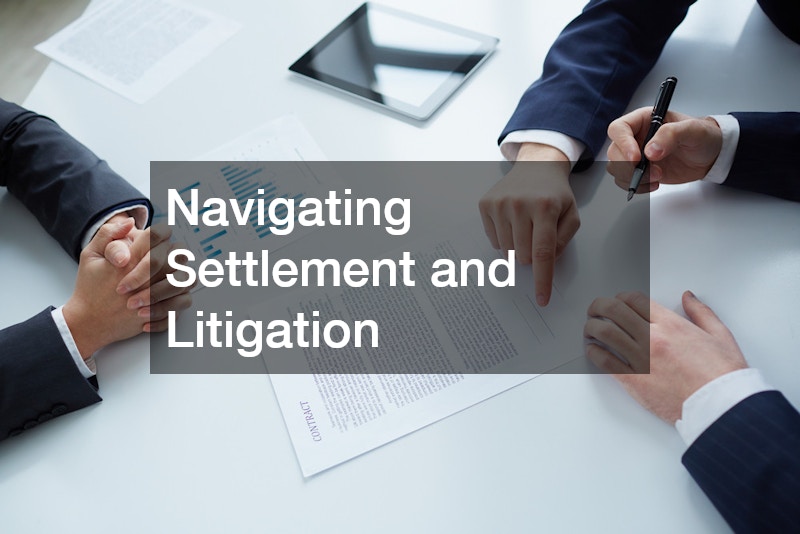When you’ve been injured due to someone else’s negligence, the path to recovery can be complex and overwhelming. A personal injury can have far-reaching consequences, affecting both your physical well-being and financial security. Engaging the services of a personal injury attorney is a critical step towards obtaining the compensation you deserve. This article will provide an extensive look at what you can expect when working with a personal injury attorney.
The Initial Consultation
The initial consultation with a personal injury attorney is your first step towards navigating the legal waters of your case. It typically involves a meeting where you’ll discuss the details and circumstances of your injury. This meeting is usually free of charge, providing you with an opportunity to explore your legal options without financial commitment. During this time, the attorney will evaluate the merits of your case, determining whether legal action is viable. It’s crucial to come prepared with any necessary documentation, as this will help the attorney make an informed assessment.
During the initial consultation, communication is key. It’s vital to be honest and transparent about all aspects of the incident, as any detail could be significant. The attorney will likely ask about the extent of your injuries, any medical treatments you have undergone, and how the injury has impacted your daily life. By providing comprehensive information, you enable the attorney to give tailored advice on how to best proceed. This consultation will also allow you to gauge whether the attorney is a good fit for your needs and expectations.
Moreover, the initial consultation is an opportunity for you to ask any questions you might have about the legal process. You might want to inquire about the attorney’s experience with cases similar to yours and their success rate. It’s also crucial to discuss potential legal fees and whether the attorney operates on a contingency fee basis. A contingency fee arrangement means that the attorney only gets paid if you win your case, thus aligning their interests with yours. This financial discussion will provide you with a clearer picture of what to expect moving forward.
Building Your Case
Once you’ve decided to proceed with the personal injury attorney, the next phase involves building your case. This process requires meticulous gathering and examination of evidence, which may include medical records, police reports, and witness testimonials. Your attorney will take the lead in compiling this information, working closely with you to ensure all details are covered. The aim is to establish a solid foundation for your case that can withstand scrutiny in settlement negotiations or in court. The thoroughness of this preparation can significantly impact the outcome of your case.
Part of building a strong case involves understanding the legal framework surrounding personal injuries. The attorney will educate you about relevant laws and legal precedents that could influence your case. This knowledge empowers you, as the client, to make informed decisions and provides greater insight into the likely trajectory of your case. Your attorney will also outline the damages you may be entitled to, which could include medical expenses, lost wages, and compensation for pain and suffering. Understanding these elements is crucial to setting realistic expectations for the case outcome.
Effective communication remains a cornerstone throughout this process. Maintaining open and constant contact with your attorney ensures that you are always updated on developments. Your attorney will likely discuss strategies and keep you informed about any settlement offers or court dates that arise. It’s crucial to voice any concerns or questions promptly, as these could impact the legal strategy.
Navigating Settlement and Litigation
As your case progresses, your personal injury attorney will navigate the complex landscape of settlements and potential litigation. A significant number of personal injury cases are settled out of court, with both parties agreeing on compensation without going to trial. Your attorney will negotiate with the opposing party’s insurance company, aiming for a fair settlement that covers all your damages. It’s the attorney’s responsibility to ensure that your interests are prioritized during these negotiations. A skilled negotiator can often resolve the matter swiftly, minimizing stress and time commitments for you.
If a settlement cannot be reached, your case may proceed to litigation. Your attorney will prepare thoroughly for this possibility, gathering further evidence and honing arguments to present in court. Litigation can be a lengthy and complex process, but rest assured that your attorney will guide you through each stage. They will handle courtroom procedures, present evidence, and argue your case in front of a judge or jury. The goal is to achieve a verdict that reflects the full extent of your losses.
Throughout this period, a personal injury attorney serves not only as your legal representative but also as a source of support. The attorney’s experience and expertise provide peace of mind, knowing your case is in capable hands. An attorney will advise you on whether accepting a settlement or proceeding to trial is in your best interest. This guidance is invaluable in ensuring a result that aligns with your expectations and needs.


